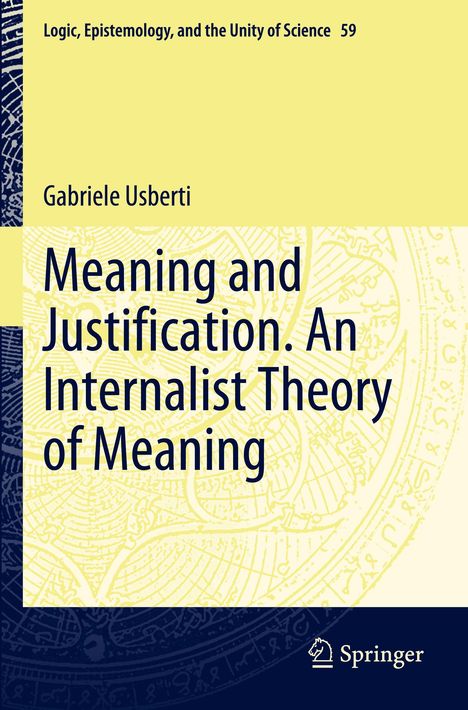Gabriele Usberti: Meaning and Justification. An Internalist Theory of Meaning, Kartoniert / Broschiert
Meaning and Justification. An Internalist Theory of Meaning
(soweit verfügbar beim Lieferanten)
- Verlag:
- Springer Nature Switzerland, 07/2024
- Einband:
- Kartoniert / Broschiert, Paperback
- Sprache:
- Englisch
- ISBN-13:
- 9783031246074
- Artikelnummer:
- 11932717
- Umfang:
- 416 Seiten
- Nummer der Auflage:
- 2023
- Ausgabe:
- 2023
- Gewicht:
- 628 g
- Maße:
- 235 x 155 mm
- Stärke:
- 23 mm
- Erscheinungstermin:
- 29.7.2024
- Hinweis
-
Achtung: Artikel ist nicht in deutscher Sprache!
Weitere Ausgaben von Meaning and Justification. An Internalist Theory of Meaning |
Preis |
|---|
Klappentext
This volume develops a theory of meaning and a semantics for both mathematical and empirical sentences inspired to Chomsky¿s internalism, namely to a view of semantics as the study of the relations of language not with external reality but with internal, or mental, reality. In the first part a theoretical notion of justification for a sentence A is defined, by induction on the complexity of A; intuitively, justifications are conceived as cognitive states of a particular kind. The main source of inspiration for this part is Heyting¿s explanation of the intuitionistic meaning of logical constants. In the second part the theory is applied to the solution of several foundational problems in the theory of meaning and epistemology, such as Frege¿s puzzle, Mates¿ puzzle about synonymy, the paradox of analysis, Kripke¿s puzzle about belief, the de re / de dicto distinction, the specific / non-specific distinction, Gettier¿s problems, the paradox of knowability, and the characterization oftruth. On a more general philosophical level, throughout the book the author develops a tight critique of the neo-verificationism of Dummett, Prawitz and Martin-Löf, and defends a mentalist interpretation of intuitionism.


